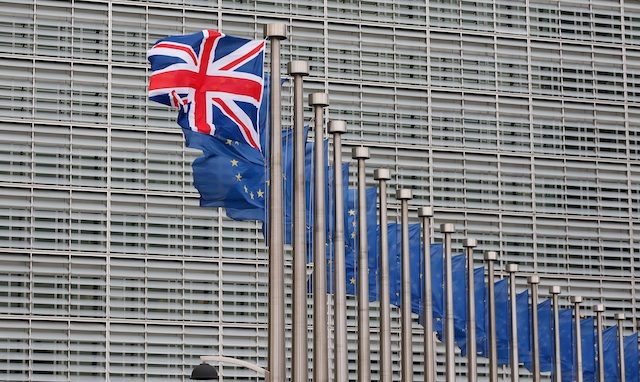SUMMARY
This is AI generated summarization, which may have errors. For context, always refer to the full article.

BRUSSELS, Belgium (3rd UPDATE) – European Union President Donald Tusk on Tuesday, February 2, unveiled proposals to keep Britain in the 28-nation club, firing the starting gun for two weeks of tense negotiations to reach a deal at a summit later this month.
British Prime Minister David Cameron said the plans showed “real progress” and made it likely that he would campaign to stay in the EU in a referendum expected in June.
The proposals include a four-year “emergency brake” on welfare payments for EU migrant workers, protection for countries that do not use the euro currency and a “red card” system giving national parliaments more power.
But the plans were dismissed as worthless by eurosceptics in Britain, and could be a hard sell for some EU states who fear that Cameron is winning too many concessions.
“To be, or not to be together, that is the question which must be answered not only by the British people in a referendum, but also by the other 27 members of the EU in the next two weeks,” Tusk said in a letter to EU leaders.
He said his proposals went “really far in addressing all the concerns raised by Prime Minister Cameron. The line I did not cross, however, were the principles on which the European project is founded.”
London’s bid to transform its EU membership has added to the turmoil as the bloc struggles with the biggest influx of migrants since World War II and the fallout from the eurozone debt crisis.
Eurosceptics blast ‘pathetic’ deal
Cameron, who is set to visit Poland and Germany in coming days to woo other European leaders, said Tusk’s proposal showed that he had “secured some very important changes”.
“If I could get these terms for British membership I sure would opt in for being a member of the EU,” he said in a speech at a factory in southwest England.
British eurosceptics were unconvinced, with London Mayor Boris Johnson, from Cameron’s own Conservative Party, saying he had “doubts” about the effectiveness of the “red card” proposal.
UK Independence Party head Nigel Farage dismissed Tusk’s proposals as “pathetic” and “hardly worth the wait”.
Tusk’s most controversial proposal is an “emergency brake” that would allow any EU state to limit the welfare payments that migrants from other European countries can claim for up to four years after their arrival.
States would have to prove an “exceptional situation” in which their welfare system and public services are overwhelmed — but instead of Cameron’s demand for an outright ban it said such limitations should be gradually reduced over the four years.
To pull the brake, Britain or any other country would also have to get approval from the European Commission, the powerful executive arm of the EU, and then from other EU leaders in a majority vote.
The plan has angered Poland, the Czech Republic, Hungary and Slovakia, which have thousands of citizens working in Britain and view proposals to limit their benefits as discriminatory.
Eurozone brake?
Despite concerns in France, Tusk’s plan includes a “mechanism” by which the nine countries that are not in the euro can raise concerns about decisions by the eurozone.
But he stressed that the mechanism could not delay or veto urgent decisions by the 19 euro countries.
Britain will be further exempted from the EU’s stated goal of “ever closer union” because of its “special status” in the bloc’s treaties – including staying out of the euro and the passport-free Schengen area.
Meanwhile, the “red card” system would allow a group representing 55% of the EU’s national parliaments to stop or change draft EU laws.
Tusk said his plans would not require a difficult change of the EU’s treaties because a deal agreed at an EU summit would be legally binding, but said some elements could be incorporated into the treaties at a later date.
Although Cameron has only set a deadline of end-2017 to hold the referendum, sources have said he is keen to push a vote through by June.
That would avoid the fallout from any new flare-up in Europe’s migration crisis this summer and British eurosceptic elements becoming even more unruly.
Opinion polls are split on whether Britons would vote to leave the EU in their first vote on the subject since 1975. – Danny Kemp, AFP/Rappler.com
Add a comment
How does this make you feel?
There are no comments yet. Add your comment to start the conversation.